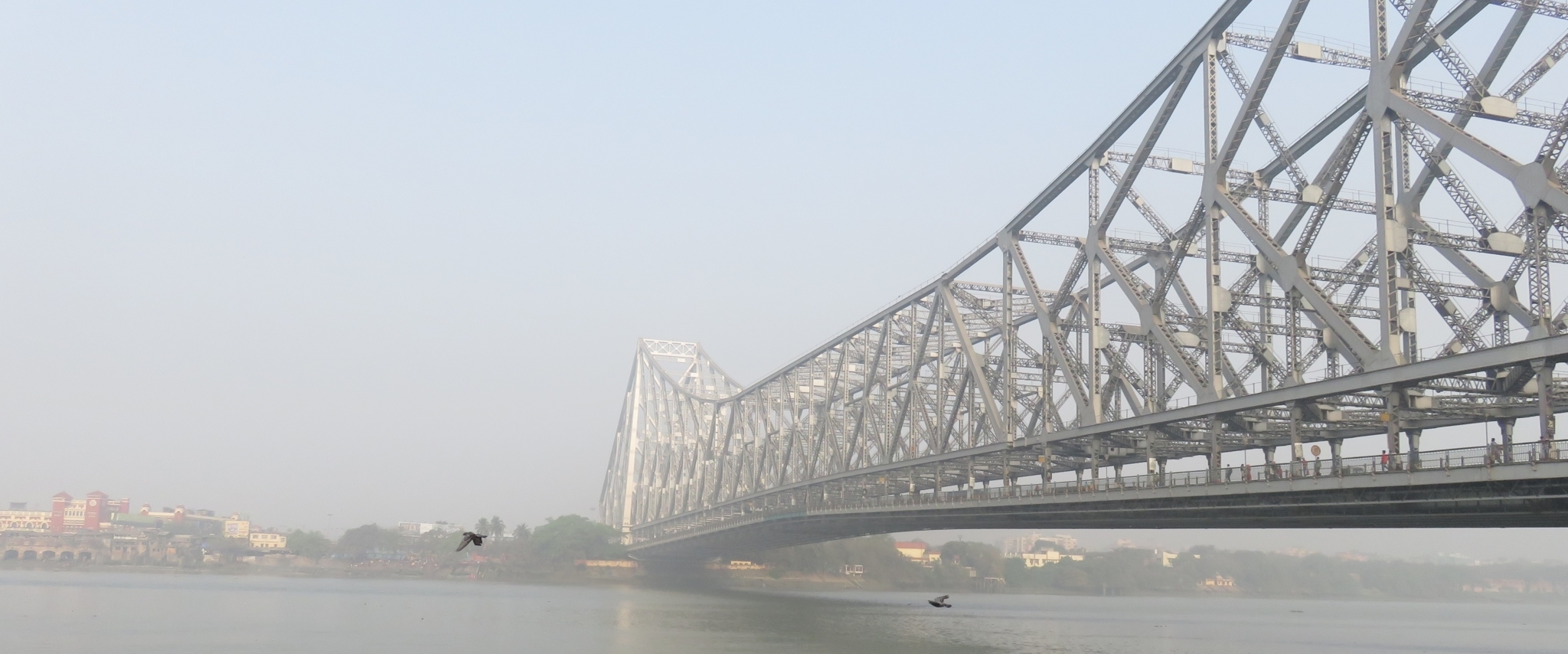
Fighting for Freedom Around the World: Interview with Kevin Clarke

At IJM, one thing we take incredible pride in is our interns and fellows program. Intelligent, passionate and adventurous men and women get the opportunity to join us on the grounds in the various areas of work to gain experience and lend their talents to our teams in the field.
We had the privilege of hearing the experience of Kevin Clarke and his wife Vicki. Kevin is a lawyer who is a partner in a small firm based in Regina, SK. Both he and his wife Vicki had a passion and desire to find ways to live out their faith intentionally, particularly to help children involved in sexual exploitation.
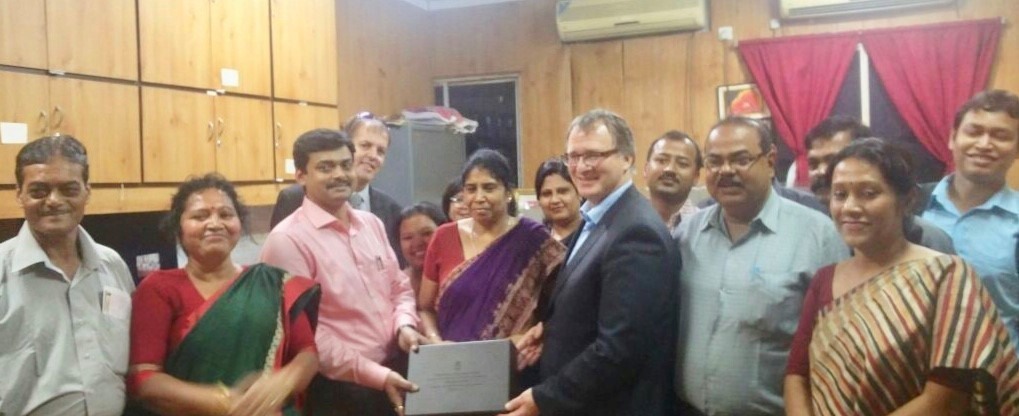
1) Tell us a little bit about yourself.
My name is Kevin Clarke, I’m 51 and live in Regina, SK. I’ve been a lawyer since 1990 and am a partner in a small firm of six lawyers. I’m married to my wife Vicki and we have two adult kids.
2) Why are you passionate about issues of injustice?
Justice issues have always been important to me; it was part of my motivation to enter law. I’ve always been interested in God’s heart for justice. Micah 6:8 [“He has shown you, O mortal, what is good. And what does the Lord require of you? To act justly and to love mercy and to walk humbly with your God.”] has been an important verse for me for my entire career. In fact, before I even entered law school. I’ve very much been interested in questions of poverty and what Christians should do to help the poor because God’s heart is for the poor, the widow, the orphan, the oppressed, the foreigner.
3) How did you learn about IJM?
My youngest son had just graduated from high school and my wife and I were considering what our next phase of life might entail. We did some investigation into some groups working in Southeast Asia. My wife [Vicki] has always had a passion for helping children involved in sexual exploitation and, in general, the issues of sexual exploitation, trafficking and prostitution. So, she took a trip with a group into Southeast Asia looking into freedom businesses. This group was trying to set up businesses that would then fund schooling and care for children who had been rescued from sex trafficking. We looked at that for a bit, but it didn’t seem to go anywhere.
I’d always said that the only thing a lawyer is good for in the mission field is giving money [laughs]. I said that to one of our friends and then she asked if I’d ever heard of International Justice Mission. I said that I hadn’t and she sent me an article that was written in The Economist by Gary Haugen [IJM Founder and CEO] about a case he was dealing with in Africa, and it intrigued me. So, I began the investigation of IJM – visited the website, read a book or two by Gary [Good News About Injustice and The Locust Effect], and did some research on third-party commentary on IJM before deciding that this was a group we were interested in looking at further.
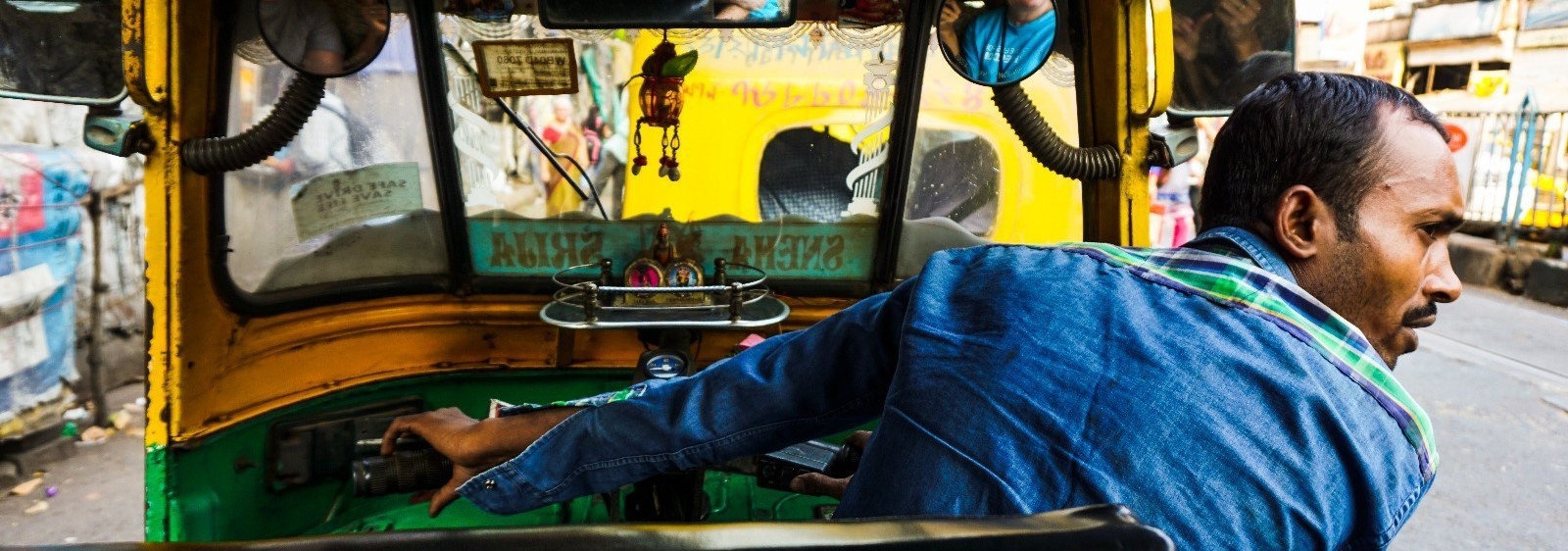
4) Tell us about your journey into the IJM Kolkata field office.
I made an application to the intern and fellows program and received an interview. I work in a small firm and consider myself a general practitioner. My current practice focuses on small to medium sized business law issues and civil litigation and administrative law. The things that I don’t do are criminal and family law. I had lots of experience, but no experience with what IJM needs. When I put the application in, it was on the basis of my experience, but no direct experience.
We weren’t tied to any particular office or work. I have done a lot of mediation in my background; and from what I could piece together from my research on IJM, I thought that the work in Africa would have fit with my skills. But when we applied, we said that we would go wherever there was need. [IJM] asked if we would consider Kolkata, which focuses on commercial sexual exploitation of children. I had an interview with the Director of Justice Solutions and they made an offer, but it was clear that I knew nothing about human trafficking, other than perhaps something I had followed in the news. I also made it clear that I knew nothing about India or Kolkata; but the offer was extended and we prayerfully considered. As I said, my wife has always had a heart for working with children in the sex trade and she also was a great admirer of Mother Teresa, so the two of those things together made Kolkata seem like the place that God wanted us to go.
I knew nothing about India, other than generally where it’s located before we decided to go to Kolkata. But whenever I go somewhere, I always try to do some research. India is a large and fascinating country with both massive potential and massive problems. And because of their colonial past, they’re very sensitive to foreign influence. To be effective in the work that IJM wants to do and to speak into the public justice system, it needs to be done by nationals. They have greatly qualified people in Kolkata – it was amazing to see the quality of people that were there – their intelligence and their passion – and it was crucial that they do that work.
5) What are some of the best moments or memories from your experience in the field?
There were so many of them, that it’s hard to pick just one. But one, on International Women’s Day in Kolkata, one of the [sex trafficking] survivors was chosen by a group to be honoured at a public event. She had a horrible backstory, what people think of when they think of sex trafficking of children, that was her story. She had been rescued by IJM at least ten years earlier; she was probably one of the early rescues in the Kolkata office. She had gone through a whole rehabilitation, restoration process and now she was working in a freedom business, and I believe she had progressed to management. And so, they honoured her at this large public event and presented her with an award. And knowing something of her backstory, where she had come from, the things she had went through and how she had succeeded in this; it was an amazing moment to see. So that was probably one of the highlights.
6) What were some things that were challenging?
India has very strong laws dealing with issues of exploitation, strong legislation dealing with sexual offenses against children, and have created dedicated courts to deal with sexual offenses against children that are fast-tracked and victim-sensitive. The struggle comes with the implementation on the ground. When we arrived in India, we were told that the average trial time for an offense of sex trafficking against children was 5-7 years. Most of that delay is caused by the defense or delays in the system. The judges would change during trials and they would rely upon partial transcripts of evidence; quite often the judge that would deliver sentencing had not even seen the survivor testify. So, there was a massive challenge in dealing with a system like that.
But it was also a great encouragement because through the course of our time in India [10 months], we saw great advances in the sensitivity of the judges and the speed of trials involving the children. It’s very important that these survivors get a chance to testify relatively quickly because memories are going to fade and they are subject to a lot of pressure from family and community to not testify because there is a lot of shame in Indian culture about this type of exploitation. These girls do nothing wrong; they’re pressed into this, exploited and forced into it, but the culture is what it is. That’s not a critique of the Indian culture, that’s just a reflection of society in general. In Canada, we may not have it to the extent they do in India, but it’s still here. There’s always that idea that the victim is at fault. I guess one of the great challenges of working inside that system was seeing how difficult it was to see justice done for both accountability for the perpetrator and restoration for the survivor.
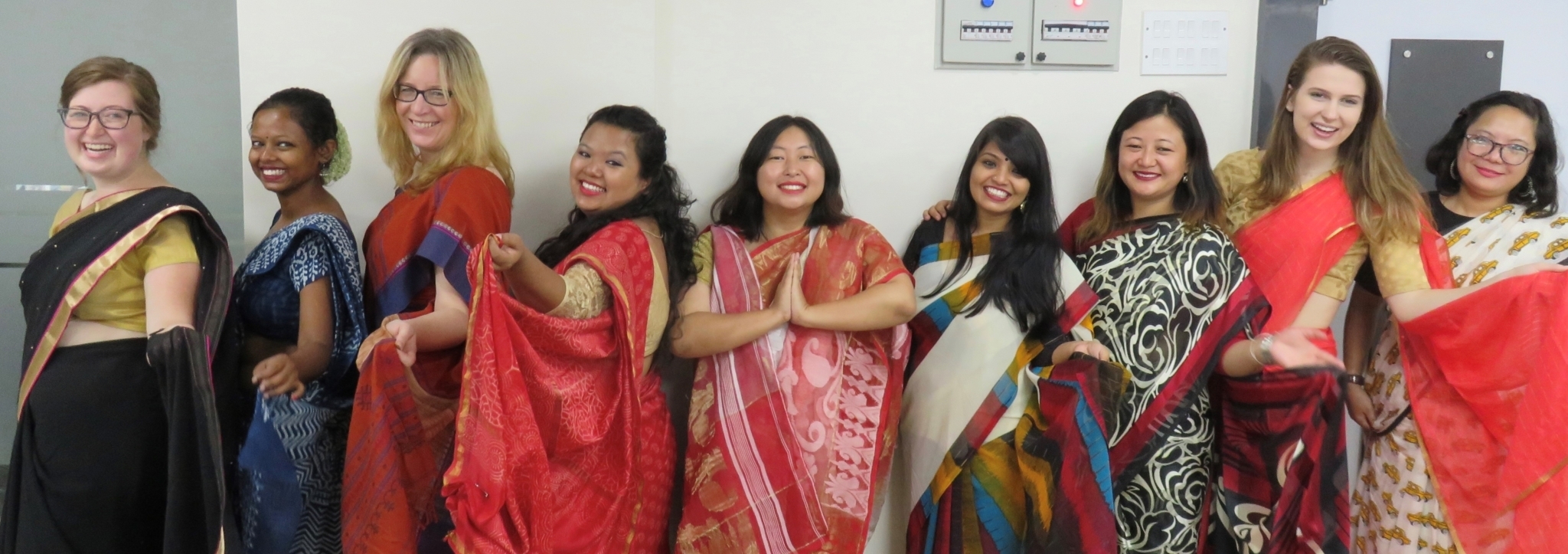
7) While you were in Kolkata, what did you miss most about home?
The familiar. I’d only ever lived in Saskatchewan, which is a little different than India [laughs]. I gave this speech to some [Canadian] police at one point and I put up a little graphic on the PowerPoint that showed West Bengal, the state where Kolkata is located in India. [West Bengal] is one-seventh the size of Saskatchewan and they have 91 million people living there.
What we missed the most was the familiar – what we knew – the density of population, the pollution, the overwhelming prevalence of poverty side-by-side with wealth, language, and the fact that we were usually the only white people. It really gave me a new appreciation for being a minority. I had never really grasped the idea that just because of the colour of your skin, you’re going to be stared at all the time. People treated me very kindly in India, Vicki had more challenges because she’s a woman and it is very much a paternalistic society where women aren’t treated well all the time.
I would say that our greatest challenge was that we missed the familiarity of Canada. I came back with a greater appreciation for my country as well.
"Anyone that has an opportunity to work with IJM will grow as a result, and you will have contributed in some small way to very important work."
8) Now that you’re back home, what do you miss most about Kolkata?
The thing that I miss about Kolkata is the people – they were amazing to work with. IJM has such strong people that they hire – talented, dedicated and passionate. Lawyers deal with the problems of people and the problems of people are, generally, rarely black and white. If you’ve got a problem because of some circumstances, I’m going to help you figure it out, but it’s rarely a black and white scenario. Whereas working in Kolkata, dealing with these issues [sex trafficking], it was black and white from what I could see. There were good guys and there were bad guys and you knew who you were going to help. So, I miss that certainty of the work that you were doing.
9) What’s next for you?
We basically went back into our life. We’d given some serious thought that this could be a life change for us when we did it. We had intended to extend further, but we ran into some visa troubles and we felt that God was giving us permission to come home. I’m back at my firm and picking up where I left off.
Interested in exploring an internship or fellowship opportunity with IJM?
10) What is the #1 piece of advice you would give to anyone who is considering doing an internship or fellowship in an IJM field office?
For a young person looking at a gap year, an experience coming out of university or starting a career, it is a great opportunity to expose yourself very intentionally to issues of injustice. The younger interns had an experience associated with a first job, doing it in a very intentional fashion, and doing things that very few people get to do. So, it’s a great opportunity to immerse yourself in the issues of justice.
For older people, like us, the challenge is that your skills are difficult to be deployed in a foreign country. You are limited by culture and language with what you can do and by the fact that you are there for a short period of time. So, for the older person, you have to approach [the experience] with humility. You’re going to be asked to do things that you may not have been asked to do for a number of years; but do it gratefully, knowing that you’re helping the people around you. Be willing to listen and speak only when people ask questions. If somebody came from India and started telling me what to do in the Canadian justice system, I’d thank them for their thoughts but tell them to go back home. It’s the same the other way around. You have to be very cautious about what you say because you don’t really know enough about it. Having said all of that, I worked with the legal team, mostly young lawyers, and it was wonderful to work with them.
11) What is the strangest food you’ve ever tried?
I’m not very adventurous when it comes to food, but we tried all sort of really spicy things. We [Canadians] have no idea what spice is [laughs]. I’m not a big fan of spice as it is, but I tried it. In India, traditionally, people eat with their hands. So I tried that, wanting to show that I’m willing to do anything. It reminded me of when I used to feed my oldest son when he was a child and the food would be all over the table [laughs]. Quite often whenever I tried to eat with my hands, the people around me would often watch for a while, get very concerned, and then someone would go and find me a spoon or a fork.
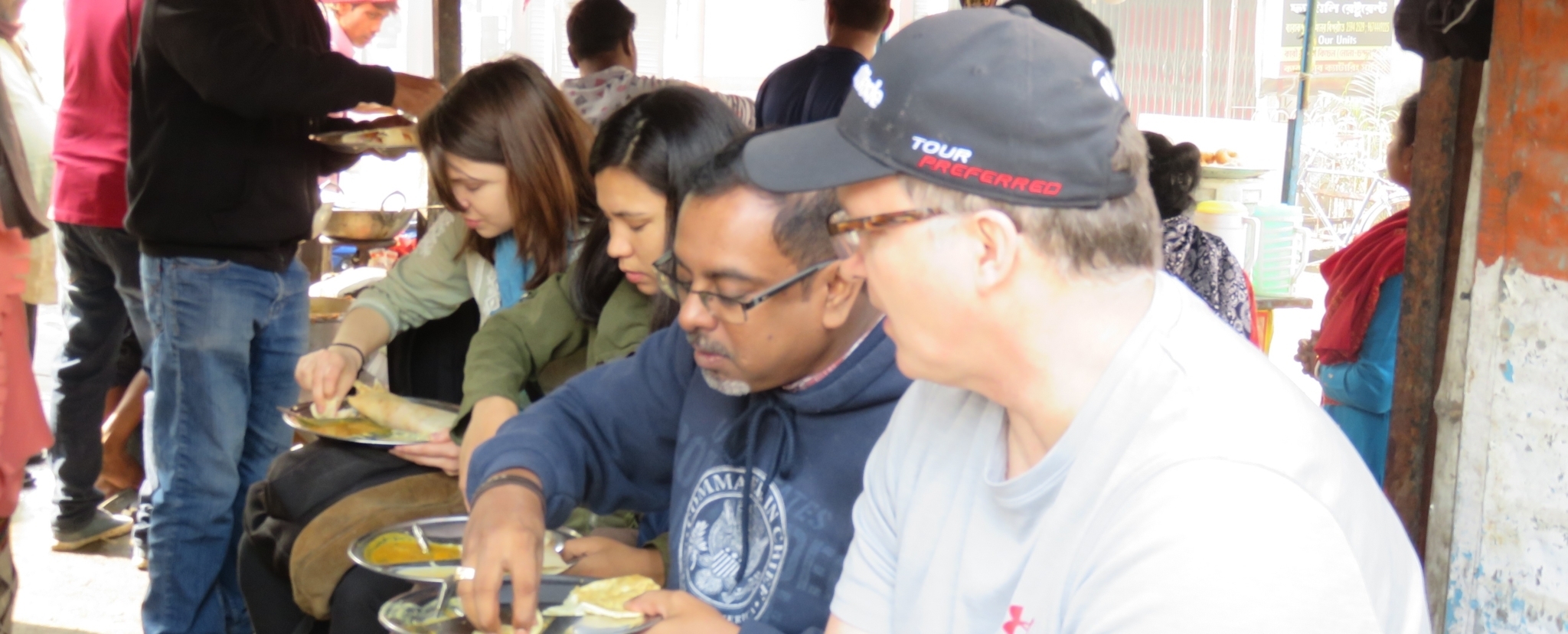
12) Anything else you’d like to share with our readers?
I consider it a great privilege to have had the opportunity to work with International Justice Mission. The work that IJM is doing is extremely important and the approach that they have to [combat] the issues of slavery and, more generally, poverty alleviation, is unique in the NGO sector and other groups.
The people that are involved are amazing to work with. I had a chance to talk with some of the leaders out of the IJM Global office in Washington on occasion and it was amazing to see the depth of their knowledge and their commitment to this work. The work that IJM does is very important and it’s a privilege to have been affiliated with them for any period of time. Anyone that has an opportunity to work with IJM will grow as a result, and you will have contributed in some small way to very important work.
